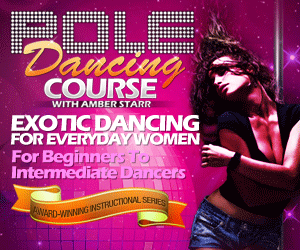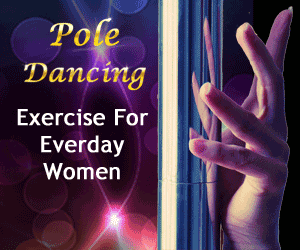Can Pole Dancing Be Empowering
Empowerment: refers to increasing the spiritual, political, social or economic strength of individuals and communities. It often involves the empowered developing confidence in their own capacities.
Marginalization: refers to the overt or covert trends within societies whereby those perceived as lacking desirable traits or deviating from the group norms tend to be excluded by wider society and ostracized as undesirables. Let’s start with empowerment. How does pole dancing strengthen individuals and communities?
Economically, women in the pole dancing community are 1) starting their own businesses through teaching, writing, clothing sales, competitions and making money. 2) Developing a new niche market 3) spending their own money for something they see as valuable and therefore stimulating the economy.
Politically, women in the pole dancing community are pushing to redefine the limits of what is seen as appropriate sexual behavior for women, pushing to be seen as athletes in their own right, pushing for the freedom to express sexuality and sensuality without marginalization and condemnation.
Socially, women in the pole dancing community are gathering in communities (as they have for centuries) and connecting, building relationships, networking, supporting one another, getting fit, exploring their sexuality, exploring their femininity, playing, laughing, crying and celebrating one another.
Spiritually, women in the pole dancing community are connecting to the erotic, which is a deeply feminine and deeply spiritual place in all of us, male or female. The erotic is linked to an internal knowing, a felt sense that lives in the body, and is readily expressed through movement. Additionally, women in the pole dancing community are gathering in the same way that many spiritually based organizations gather: once a week, in a designated sacred space, with the intention of communing individually and collectively in honor of their bodies and their movement.
For most women who have taken a pole dancing class for any extended period of time, it goes without saying that they have increased their confidence in their capacities, physically and sometimes sexually as well. So these are the ways in which pole dancing falls under the definition of the word “empowering”.
Now, let’s talk about the definition of marginalization for a minute: it refers to the overt or covert trends within societies whereby those perceived as lacking desirable traits or deviating from group norms tend to be excluded by wider society and ostracized as undesirables. Pole dancing is, at this stage, most definitely deviating from the norm. Ten years ago you would have been hard-pressed to even find a class. Gaining mainstream acceptance has only just begun and we are, as a community of women who freely choose to dance sensually on a pole in six-inch stilettos, not the norm.
The idea that women are taking these classes in order to be “ogled” and that there is something inherently wrong with that is downright absurd. First of all, the reason pole dancing classes are all female is specifically to avoid the “ogling” factor (and not because they are sexist, as Mr. Mitchell would have us believe). Secondly, so what if a woman enjoys the gaze of another person while dancing erotically. What is wrong with that? I’ll tell you what’s wrong with it. Anyone who has ever danced erotically for another knows the tremendous power she has over that person. The quickest way to rob a woman of that power is to shame her out of it. And that’s the dirty little trick that’s been played on women for centuries. Unfortunately, we play into it by allowing and sometimes even encouraging demeaning responses to our sexuality. It’s only by fully owning and expressing our sexual selves that we will put an end to that nasty practice. Pole dancing, as most of us know already, is an excellent way of doing just that.



